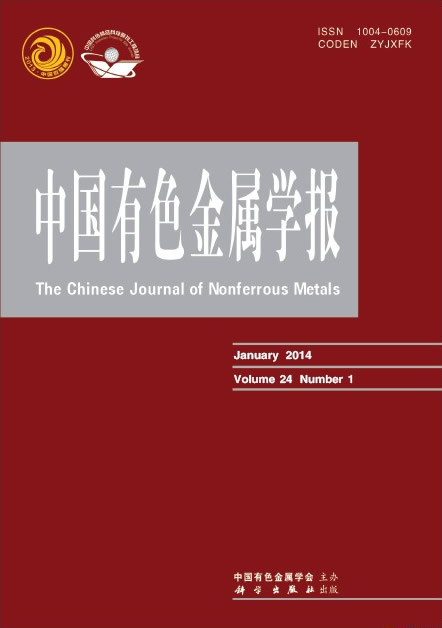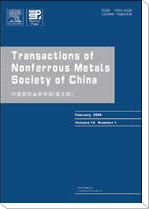中国有色金属学报(英文版)
Transactions of Nonferrous Metals Society of China
| Vol. 35 No. 10 October 2025 |
(1. School of Energy and Power, Jiangsu University of Science and Technology, Zhenjiang 212003, China;
2. Instrumental Analysis Center, Jiangsu University of Science and Technology, Zhenjiang 212003, China)
Abstract:To modify the stable thermodynamics and poor kinetics of magnesium hydride (MgH2) for solid-state hydrogen storage, MIL-100(Fe) was in situ fabricated on the surfaces of TiO2 nano-sheets (NS) by a self-assembly method, and the prepared TiO2 NS@MIL-100(Fe) presents an excellent catalytic effect on MgH2. The MgH2+ 7wt.%TiO2 NS@MIL-100(Fe) composite can release hydrogen at 200 °C, achieving a decrease of 150 °C compared to pure MgH2. Besides, the activation energy of dehydrogenation is decreased to 70.62 kJ/mol and 4 wt.% H2 can be desorbed within 20 min at a low temperature of 235 °C. Under conditions of 100 °C and 3 MPa, MgH2+7wt.%TiO2 NS@MIL-100(Fe) absorbs 5 wt.% of H2 in 10 min. Surprisingly, 6.62 wt.% reversible capacity is maintained after 50 cycles. The modification mechanism is confirmed that the presence of oxygen vacancies and the synergistic effect of multivalent titanium in TiO2 NS@MIL-100(Fe) greatly enhance the kinetic and thermodynamic properties of MgH2.
Key words: hydrogen storage; magnesium hydride; oxygen vacancies; multivalent titanium; catalytic mechanism


